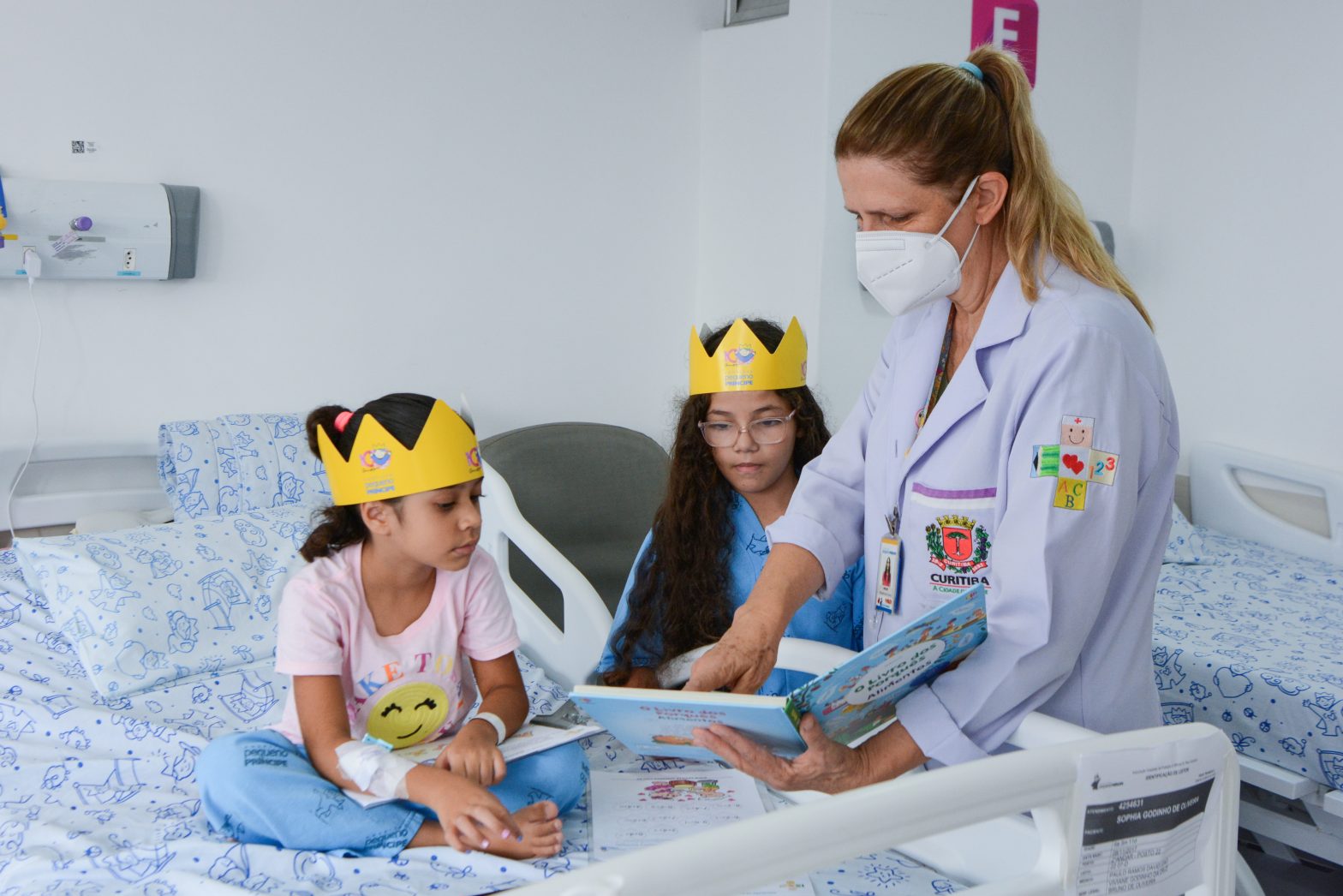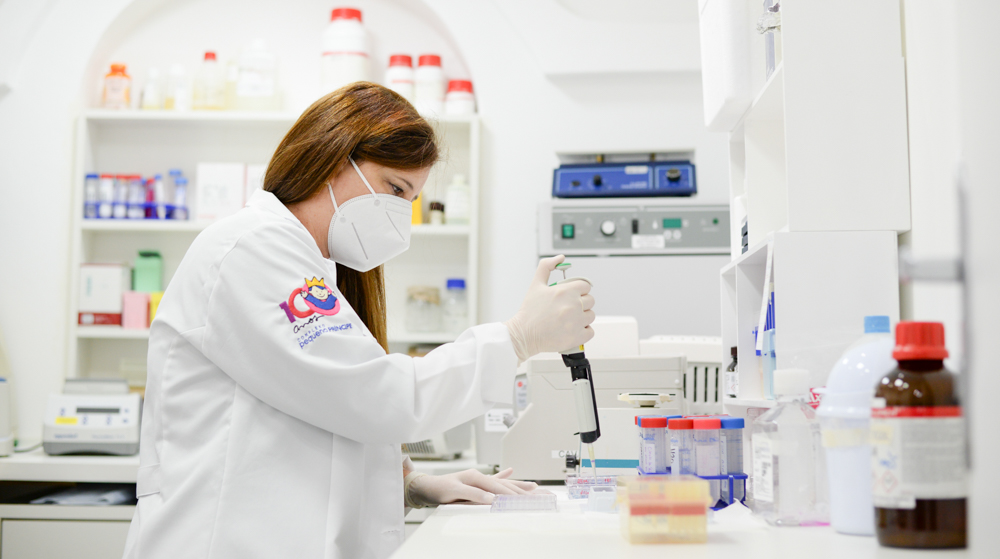Molecular tests change the trajectory of treatments and increase the chances of cure
With the support of society, Pequeno Príncipe offers these exams to patients treated by the Brazilian Public Health System
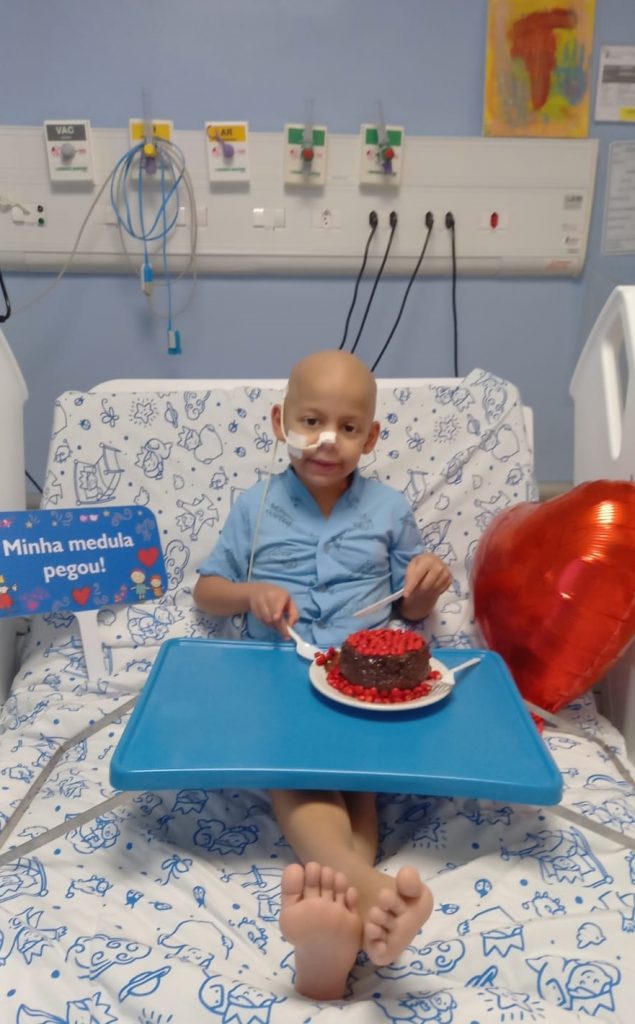
Sophia was admitted at the Pequeno Príncipe Hospital Emergency in February 2022. The 4-year-old girl had fever, cough and sore throat. She was very pale, with swollen knees, small spots on her legs and alterations in her blood test. This set of signs led the doctor to suspect leukemia. It was necessary, however, to carry out other tests to confirm and refine the diagnosis.
The team then began an extensive investigation. The first test performed was the myelogram, which demonstrated an increase in promyelocytes, but without characteristics of acute promyelocytic leukemia (APL), which was the initial suspicion. Next, immunophenotyping was performed using flow cytometry, which also presented an inconclusive result. Two other tests were carried out – cytogenetics and research of PML-RARa rearrangement by PCR – and the results did not justify the girl’s clinical condition.
The doctors then requested the NGS panel of childhood neoplasms, which evaluates 203 genes, including fusions, point mutations, complete gene sequencing and gene copy changes. The objective was to detect any changes that would justify Sophia’s clinical condition and could bring the diagnosis to a closure.
“Based on the panel analysis, we detected the presence of a gene rearrangement that is present in around 0.1% of cases – the rearrangement NPM1-RARA –, in addition to a change in the NRAS gene. This result allowed the diagnosis to be confirmed, enabling the care team to conduct the treatment in the best way possible,” explains genomic techniques coordinator, Renata Montoro Dourado.
Sophia’s type of leukemia was extremely critical, requiring quick action. She underwent the chemotherapy cycles indicated as the first treatment for this diagnosis, but, after a period, the disease rebounded. The girl then underwent a bone marrow transplantation (BMT). The transplant was a success, and today Sophia continues to be monitored, by periodically performing immunophenotyping tests and chimerism, which allows monitoring the rate of donor cells in the recipient’s blood, therefore indicating that the transplant continues to work. Besides these exams, searching for NPM1-RARa rearrangement by PCR is also performed periodically, an exam that was internalized by the laboratory with support of Pelé Pequeno Príncipe Research Institute, specifically for the monitoring of Sophia case.
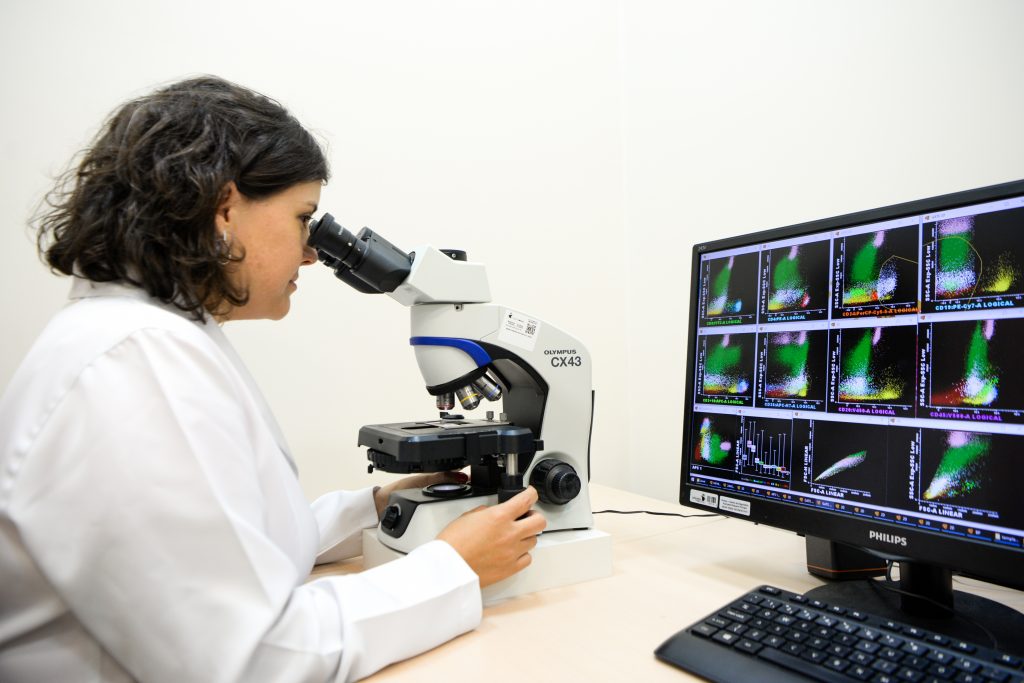
Advanced Diagnostic Center
Sophia’s family has health insurance. However, the majority of patients undergoing treatment at the Pequeno Príncipe Oncology and Hematology Service are assisted by the Brazilian Public Health System (SUS, abbreviation in Portuguese), which does not cover such tests. The Hospital is able to offer this cutting-edge technology to everyone, democratizing access to qualified assistance, due to the support it receives from society. It was through donations, under the National Program to Support Oncology Care (known as Pronon), that the institution was able to establish the Pequeno Príncipe Advanced Diagnostic Center – Genomic Laboratory and continuously purchase the necessary supplies to carry out these tests.
Opened in 2018, the unit operates on three fronts: immunophenotyping, pathological anatomy and molecular biology. By concentrating these areas in the same environment, it becomes complete and even more resolute, as it allows professionals from different areas to discuss and delve deeper into the cases.
“Molecular exams are extremely important in the treatment of hematological and oncological diseases, as they provide information for better therapeutic guidance, minimization of undesirable side effects, reduced expenses and increased life expectancy and cure,” highlights the hematologist Edna Kakitani Carboni.
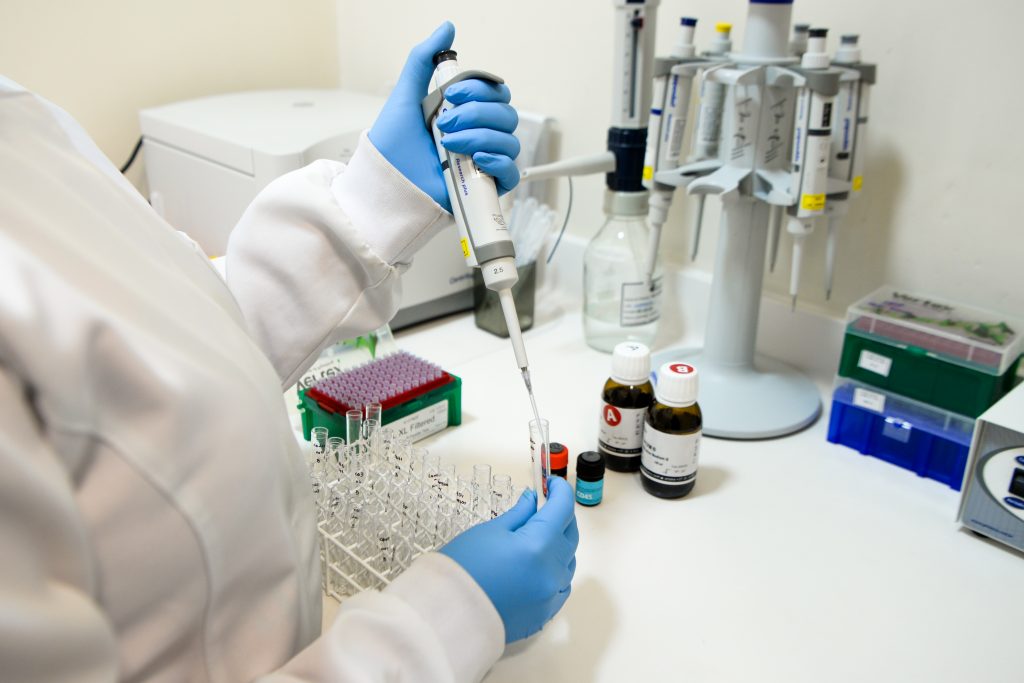
Expanded service
The Advanced Diagnostic Center was implemented with a focus on investigating onco-hematological diseases, however, in recent years, due to the Hospital’s demands, it has also improved by carrying out tests to detect infectious diseases, such as respiratory panels and viral meningitis and bacterial and viral gastroenteritis panels. “Due to the large number of viruses circulating today, knowing exactly what we are dealing with is extremely important to evaluate the treatment, provide guidance regarding the prognosis and especially regarding isolation measures,” emphasizes infectious disease specialist Victor Horácio de Souza Costa Júnior. “The isolation of a patient infected with SARS-CoV-2 [COVID-19], for example, is different from that required for cases of influenza infection,” he points out.
In addition to serving children undergoing treatment at Pequeno Príncipe, the Advanced Diagnostic Center contributes to qualifying the assistance offered by other hospitals in Paraná and even other states. In the first four months of this year, for example, around 15% of the tests carried out were on samples sent by other health institutions.
More
More than 70% of children and adolescents who receive school support at the Pequeno Príncipe attend public schools
In 2023, around 1,800 patients aged 3 to 19 years old benefited from educational initiatives carried out at the Hospital
Research seeks to develop a more accurate method for diagnosis, prognosis and monitoring of tumors of the central nervous system
CNS tumors have a higher incidence in children up to 10 years of age and represent 30% of deaths from childhood cancer in Brazil


